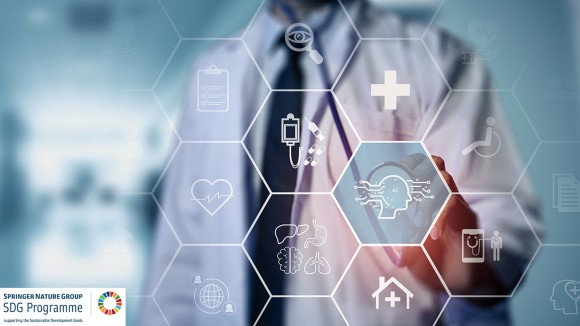npj Digital Medicine is managed by in-house professional editors and edited by a team of external academic editors.
npj Precision Oncology is managed by in-house professional editors and edited by a team of external academic editors.
Scientific Reports is managed by in-house professional editors and edited by Editorial Board Members.
Our editors work closely together to ensure the quality of our published papers and consistency in author experience.
Guest Editors for npj Digital Medicine
 Zoie SY Wilkins-Wong, St. Luke’s International University Tokyo, Japan.
Zoie SY Wilkins-Wong, St. Luke’s International University Tokyo, Japan.
Dr. Zoie S.Y. Wilkins-Wong is an Associate Professor at St. Luke’s International University (Tokyo, Japan). Dr. Wong customizes, develops, and integrates natural language processing and artificial intelligence to analyze complex real-world health data. Her research in digital medicine covers a range of topics, including patient safety, epidemic surveillance, and EHR information extraction. With over a decade of research experience, her work spans across digital health policy, methods, design, and evaluation. Dr. Wong currently serves a global member of International Medical Informatics Association (IMIA) Technology Assessment and Quality Development in Health Informatics Working Group (TAQD WG) and was on the Roster of Experts for the World Health Organization (WHO) Digital Health Technical Advisory Group (DHTAG).
 Jitendra Jonnagaddala, MD, MIS, PhD, FAIDH, School of Population Health, Faculty of Medicine, University of New South Wales (UNSW), Sydney, Australia
Jitendra Jonnagaddala, MD, MIS, PhD, FAIDH, School of Population Health, Faculty of Medicine, University of New South Wales (UNSW), Sydney, Australia
Dr. Jitendra Jonnagaddala is a Senior Research Fellow with the School of Population Health under the Faculty of Medicine at the University of New South Wales (UNSW), Sydney, Australia. He is also member of the World Health Organization (WHO) Collaborating Centre for Digital Health at UNSW Sydney that supports the WHO Western Pacific Region in selected programs in improving the uptake and utilisation of digital health interventions. His research interests are in the secondary usage of routinely collected electronic health records (EHRs) for digital health research. His focus is on integration of heterogenous data modalities in primary care and cancer, using clinical natural language processing and predictive modelling. Jitendra has over 15 years of experience working in various medical and digital health roles and lead several research projects working with national and international partners such as the Australian Commission on Safety and Quality in Health Care (ACSQHC), WHO, Asian Development Bank (ADB) and The United Nations Children's Fund (UNICEF).

